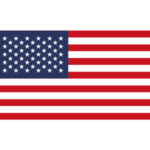

In June 2024, the U.S. Supreme Court issued two landmark rulings, Securities & Exchange Commission v. Jarkesy and Loper Bright Enterprises v. Raimondo , each of which has broad implications for the powers of the executive branch. While neither decision specifically addressed the powers of agencies focused on national security or foreign policy, such as the Department of Commerce’s Bureau of Industry and Security (BIS) or the Department of the Treasury’s Office of Foreign Assets Control (OFAC), some of the broader language in these decisions could call into question the potential for these agencies, which are often granted broad regulatory deference and sweeping enforcement powers, to suffer an erosion of their authority.
Jarkesy – Let’s Leave Common Law Claims to the Courts, Not the Agencies
On June 27, 2024, the Court issued a decision invalidating the Securities and Exchange Commission’s (SEC) statutory authority to impose civil penalties for fraud violations in a forum outside of a federal court. The case concerned whether the SEC could impose a civil penalty against a defendant accused of fraud through the SEC’s internal administrative forum, rather than in federal court. Although Congress authorized the SEC to do so internally, the Court ruled that the SEC’s civil penalty action implicated the Seventh Amendment to the U.S. Constitution, which provides for a right to a jury trial in “common law suits.” The Court’s decision focused on the fact that civil monetary penalties had traditionally been imposed by common law juries, particularly in cases involving common law fraud.
Jarkesy Exception – Public Rights: Over the past 50 years, the Court has carved out an exception to the Seventh Amendment’s right to trial by jury in cases involving “public rights.” The Court made clear in its opinion in Jarkesy that this exception cannot be allowed to swallow up the general presumption in favor of a right to trial by jury before an Article III court and must be limited to cases analogous to those traditionally excepted from the right to trial by jury, including (but not appearing to be limited to) “the collection of revenue, the enforcement of customs laws, immigration, and the granting of public benefits.” Beyond this list of traditionally excepted “public rights,” the Court did not elaborate on a test for determining whether a claim falls within the public rights exception.
Loper Bright – Ambiguous Statutes Do Not Automatically Imply Deference by Agencies
On June 28, 2024, the Supreme Court issued a ruling that overturned the nearly 40-year-old doctrine known as Chevron deference , which required courts to defer to an executive agency’s reasonable interpretation of ambiguous statutes, even if the Court would have found a different interpretation to be best. Loper Bright reversed Chevron , holding that courts must, in interpreting an ambiguous statute, exercise their “independent judgment” in deciding the proper interpretation of the statute, and may not simply defer to whatever agency interpretation is permissible.
The Court rejected the view that agencies are experts best suited to interpret statutory ambiguities, noting instead that courts can do their “ordinary work” of interpreting statutes “with due respect for the views of the Executive Branch,” which can help inform a court’s judgment. This last point is important: While courts will no longer defer to any “permissible” interpretation of an ambiguous statute, they are still permitted to consider and give great weight to a well-reasoned interpretation of the statute by the agency. The better the agency’s reasoning, the more deference it will be given, and the more likely a court will find its reasoning to be the correct interpretation of an ambiguous statute.
Jarkesy and Loper Bright in the context of national security
Neither Jarkesy nor Loper Bright cited any explicit “national security” or “foreign affairs” exceptions in their respective opinions. Thus, unless challenged, the rulings in those cases may be applicable to agencies that administer and enforce national security-focused regulations, including those in the Treasury and Commerce Departments. Below, we discuss the potential implications of the cases for national security-focused agencies:
Jarkesy, in particular, creates potential limitations on agencies’ enforcement power regarding sanctions, export controls, and anti-money laundering (AML) violations, among others. Enforcement agencies such as OFAC, BIS, the Financial Crimes Enforcement Network (FinCEN), and the Committee on Foreign Investment in the United States (CFIUS) rely on authorities within their regulations to issue civil monetary penalties for potential violations.
OFAC, for example, can take a range of administrative actions pursuant to its regulations, such as unilaterally imposing civil monetary penalties or negotiating settlements with a potential violator of U.S. sanctions. Such broad enforcement mechanisms may leave a potential violator with little bargaining power with national security agencies and also serve to deter private actors from committing future violations.
It is unclear whether Jarkesy’s largely undefined “public rights” exception includes cases involving matters of national security or foreign affairs, particularly in cases involving the administrative imposition of monetary penalties imposed for fraudulent or willful conduct that may have required a jury trial at common law. Practitioners and their clients alike should pay close attention to future lawsuits challenging administrative penalties and, if appropriate, consider challenging such penalties based on the Jarkesy decision.
A potential increase in civil challenges to OFAC, BIS, FinCEN and CFIUS regulations .
Historically, there have been few instances in which private actors have successfully challenged national security agencies’, such as OFAC’s, interpretations of statutes within their area of expertise. Moreover, Loper Bright left intact the Court’s 2019 decision in Kisor v. Wilkie, which held that some deference should be given to an agency’s interpretation of its own ambiguous regulations, provided that the regulations are truly ambiguous and the agency’s interpretation is reasonable and, in fact, a product of its own expertise. Reversing the Chevron doctrine and limiting agency deference could prompt further limitations to the Kisor rule, thereby providing an easier path for potential litigants to challenge national security agencies’ increasingly numerous and complex regulations.
All of this is taking place against the backdrop of a raft of new regulations or notices of proposed rulemaking (NPRMs) issued by the Biden administration regarding technology-related investments to and from China. While such rules and NPRMs could go into effect in the near future, they are likely to face challenges, according to Jarkesy and Loper Bright.
For more information, please contact:
Timothy P. O’Toole, totoole@milchev.com, 202-626-5552
Laura Deegan, ldeegan@milchev.com, 202-626-5942
Caroline J. Watson, cwatson@milchev.com, 202-626-6083
Melissa Burgess, mburgess@milchev.com, 202-626-5914
Manuel Levitt, mlevitt@milchev.com, 202-626-5921
Annie Cho, acho@milchev.com, 202-626-1570




